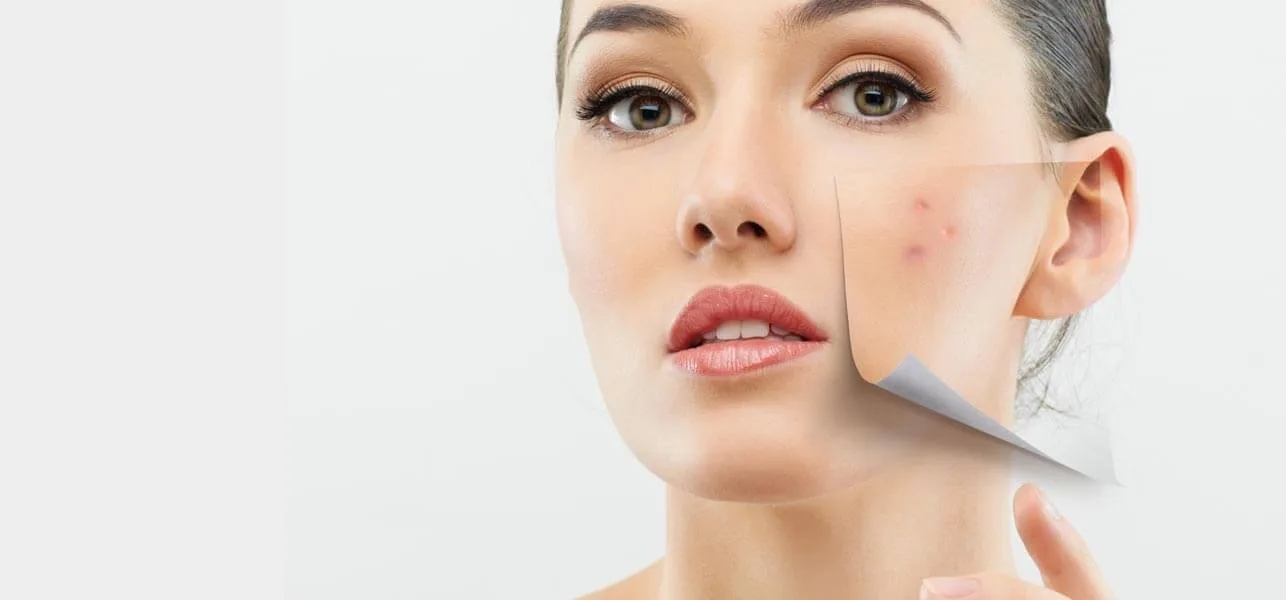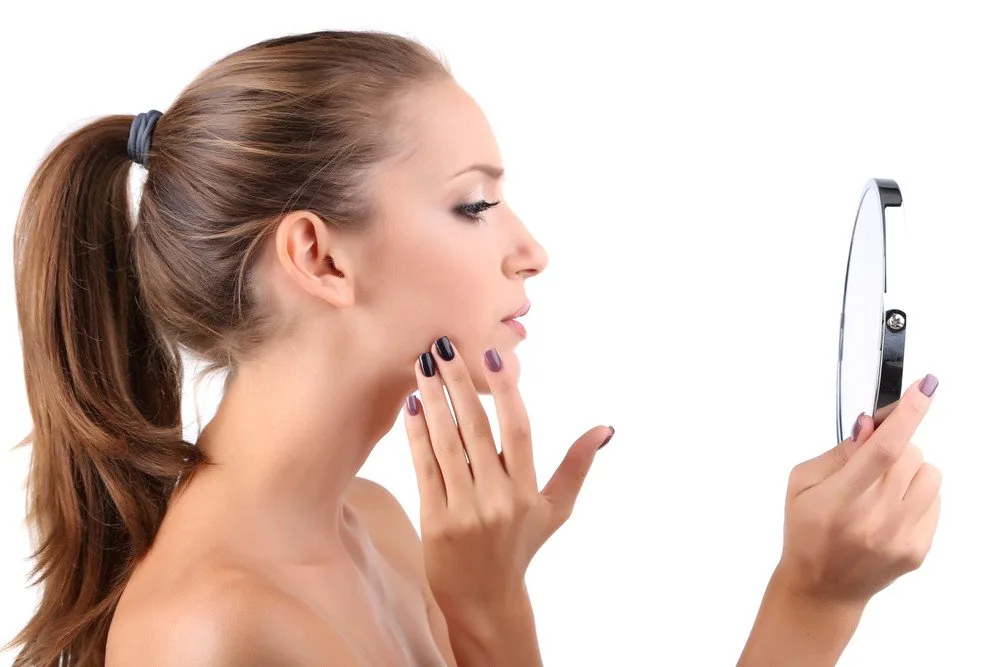Whiteheads are one of the forms of acne – a mild, but a very common and a really annoying one. You probably know them too well – they are the white, small, and round bumps that tend to appear on your skin now and then, most frequently on your face, but also on your chest, back, and neck. Such acne is a sign of clogged pores – it develops if there is too much debris, sebum, and dead skin cells gathered inside.
If a thin layer of skin covers the clogged pores, the bump’s white head can be clearly visible. Nobody wants their face to be covered with such pimples (especially if you have, for example, a date, a job interview, or a party coming soon!), so looking for ways to get rid of whiteheads is very common. For instance, you can use salicylic acid, benzoyl peroxide, or an antibiotic erythromycin product, such as the Zineryt lotion. However, it is not only essential to know how to eliminate whiteheads, but also to understand what their presence on your skin can tell you about your health. Let’s find out more about this!
What Causes Whiteheads?
There are many reasons why whiteheads keep on appearing on your skin, including poor skincare, bad lifestyle habits, or even simply genetics.
What is more, acne can also be caused by hormonal fluctuations or changes. At certain life stages, your skin can produce more sebum in the pores than usual, and the more oil, the higher the probability that it will end up clogging and whitehead popping.
Apart from that, other causes of acne can be as follows:
- stress
- puberty
- hormonal changes
It is worth knowing that whitehead presence shows that your body is trying to push out an infection. Therefore, it is an attempt to get rid of bacteria through your skin. Sometimes it happens very fast, and a whitehead can develop overnight, but when it comes to the closed comedones, they can form for even two months.
Interestingly, the reason for the acne can depend on the area where it pops out. Let’s find out more about that.
Cheeks

If you notice constant acne on one of your cheeks, it is likely due to your dirty pillowcase, smartphone, or any other object that often comes into contact with your face.
Keep in mind that you use your phone without washing your hands first, so there can be a lot of bacteria on it, and you transfer all of them to your face while making a call. To solve this problem, consider washing your pillowcases more often and cleaning your smartphone with a disinfectant wipe. Also, you can use your earphones during phone calls.
Nose and Forehead
The famous T-zone area and acne appears there mostly due to stress or oil. Whiteheads also tend to be one of the signs that you do not get enough sleep. To relieve stress and make it easier for you to fall asleep, you can try meditating, exercising before going to bed, or listening to relaxing music.
If you notice that your skin is too oily, you can try cleaning it with oil-free salicylic acid washes. And you should always remember to choose cosmetics in accordance with your skin type! Apart from that, avoiding touching your T-zone will help a lot with acne, too.
Chin and Jawline
If this form of acne appears on your jawline and chin most commonly, it can mean that the hormone levels in your body are fluctuating.

Most commonly, it is the effect of excess androgens overstimulating the old glands and clogging pores. Hormones can overflow a week before menstruation or can be associated with starting or changing birth control medications. Also, hormone imbalance is often caused by your dieting habits, especially if you eat many high-carb foods or diaries with added hormones. Hence, to reduce the number of whiteheads on your skin, you can try cutting back on white bread, sugars, dairy, and processed foods.
Hairline area
Whiteheads surrounding your hairline are often referred to as “pomade acne.” Pomades can be found in thick, mineral oil-based hair care products, and they prevent the natural oil or sebum in the hair follicles from coming out, leading to a blockage and, therefore, acne.
If you often see whiteheads in your hairline areas, you should avoid using the pomade, wash your face after application, and start using a clarifying shampoo. Also, you can search for non-comedogenic products that do not cause clogging. Moreover, if you are using sprays or dry shampoo, make sure to cover your face with your hand to avoid acne.
Summary
Whiteheads can be very annoying, so it is worth knowing what causes them to be able to prevent them. They appear as a result of clogged pores, and this is often triggered for different reasons.
To get rid of whiteheads, you can use salicylic acid, benzoyl peroxide, Zineryt lotion, or other products. However, if you see that nothing helps with your acne, it is best to get medical advice.
This post is Longevity Partner Content
Who is the author?
Paulina Dolatowska is an experienced and passionate content writer. She majored in English Philology, and then she started to turn her passion for writing into a profession. It makes her genuinely content to help people solve their health problems through research. Apart from writing, she enjoys playing video games, reading books on the balcony, attending Bollywood dance classes, and spending time with her fiancée and their three cats. She’s passionate about natural health and healing.



![women [longevity live]](https://longevitylive.com/wp-content/uploads/2020/01/photo-of-women-walking-down-the-street-1116984-100x100.jpg)










